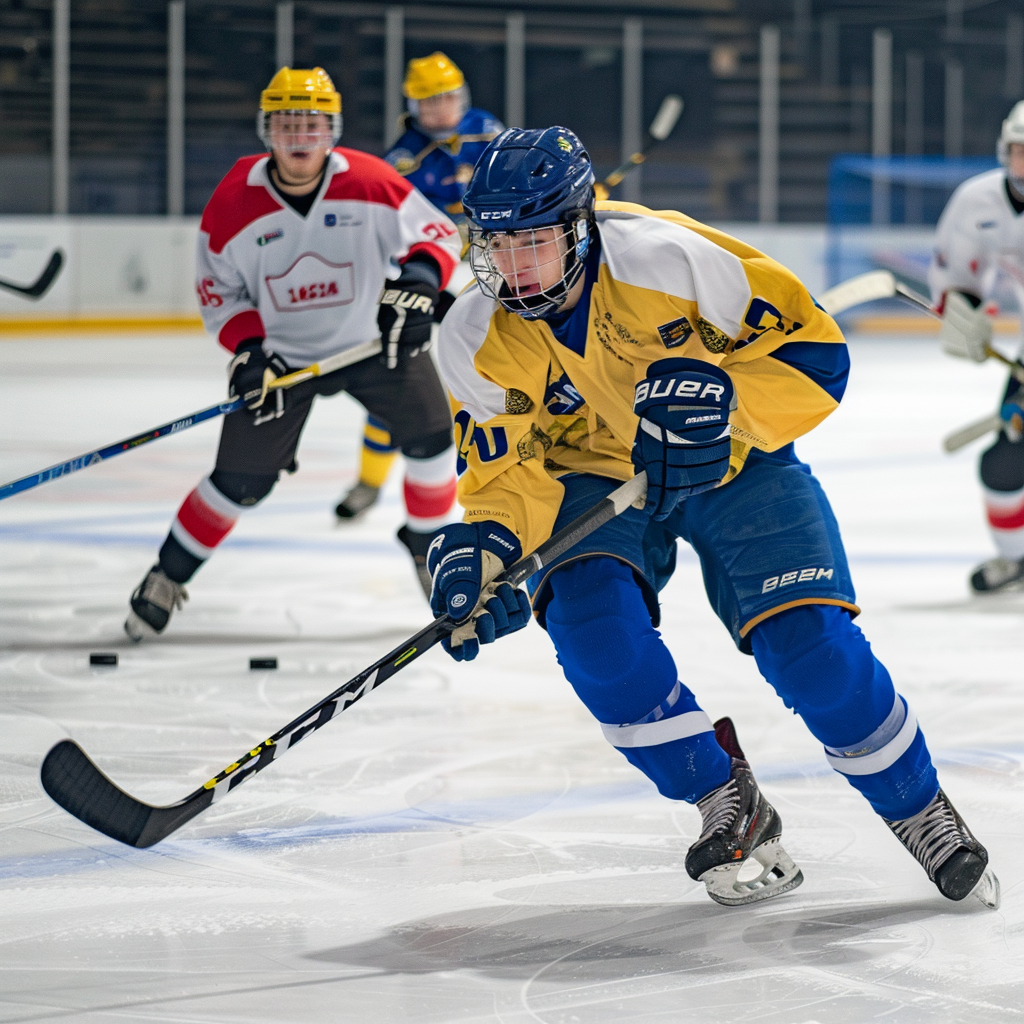
In hockey, there are certain players whose presence on the ice can determine the outcome of the match. Let’s find out what qualities make them key, and how their injuries or absence can affect the team.
The importance of key players in hockey
Key players in hockey are those who not only have outstanding skills and talent, but are also able to make decisions in difficult situations and inspire their team to win. Their impact on tournament results can be colossal due to several key aspects:
- Leadership: Key players are often the heart and soul of their team. They are not only outstanding players, but also leaders who can motivate their teammates and maintain a high level of morale within the team.
- Performance: They often have a high level of playing skill and the ability to deliver results at key points in a match. Their goals, assists or blocked shots can decide the outcome of the game.
- Experience and decision making skills: Key players often have extensive experience playing at a high level and the ability to make good decisions under pressure. Their decisions on the ice can determine the course of the match.
- Position in the team: They occupy strategic positions on the field and play key roles in the team’s system of play. Their play has a great influence on the dynamics of the game and the tactics of the team.
It is these qualities that make key players indispensable to the team and determine their importance in achieving success in hockey tournaments.
The impact of injuries on tournament results
Injuries to players in hockey can have a significant impact on tournament results, as they can leave a team without key contributors or reduce the performance of players returning to the ice after recovery. Let’s consider several aspects of the impact of injuries on tournament results:
- Losing Key Players: Injuries to key players can significantly weaken a team, depriving it of an important source of leadership, skill and experience. This can reduce the team’s effectiveness both offensively and defensively, which can lead to poor results in matches and tournaments.
- Players’ inability to return to action: Even after recovering from injury, players may experience limitations in performance or risk of re-injury. This can reduce their ability to perform at their maximum level and affect the outcome of the game or tournament as a whole.
- Psychological effect on the team: Injuries to key players can also affect team morale and cause anxiety and uncertainty among other players. This can affect their performance and ability to focus on the game, which can lead to negative results.
The impact of the absence of key players on tournament results
The absence of key players from a hockey team, whether due to injury, suspension or other reasons, can also have a significant impact on tournament results. Let’s consider several aspects of this influence:
- Loss of leadership and experience: The absence of key players leaves the team without an important source of leadership and experience. This can reduce the team’s confidence and morale, which can affect their performance and results in games and tournaments.
- Shortage of replacements: In the absence of key players, teams may have difficulty finding suitable replacements for their position. This may lead to the need to restructure game tactics and change the roles of other players, which may affect results in tournaments.
- Psychological effect on the team: Missing key players can cause anxiety and uncertainty among other players on the team. This can affect their performance and ability to focus on the game, which can lead to negative results in tournaments.
Preventive measures to reduce the risk of injury to key players
Preventive measures are key to reducing the risk of injury to key players and ensuring their long-term performance.These measures include a range of actions aimed at preventing injuries and maintaining players’ fitness. This includes regular medical examinations and screenings to identify potential problems, as well as providing specialized training to strengthen muscles, increase flexibility and improve playing technique to reduce the risk of injury.
Strategies for replacing missing players and compensating for team losses
Missing key players from a team can be a major challenge, but there are replacement and compensation strategies that can help a team cope. This includes strengthening the team’s depth by developing young players and supporting alternative playing tactics and strategies to adapt to new conditions. Additionally, it is important to maintain positive team morale and spirit to motivate players to continue to strive and achieve goals despite the absence of key members.
The influence of key players on the results of hockey tournaments, as well as the consequences of their injuries and absences, undoubtedly play an important role in the success of the team. Injuries or absences of such players can seriously affect the dynamics and results of matches, as well as the overall success of the team in tournaments. Preventive measures and player replacement strategies are integral to successful risk management and team resilience in a competitive environment.
Preventative measures include regular medical examinations, specialized training and screenings to identify potential problems, and strengthening muscles and increasing flexibility.
Replacement strategies include strengthening squad depth, developing young players and supporting alternative playing tactics and strategies that are adapted to new conditions.
